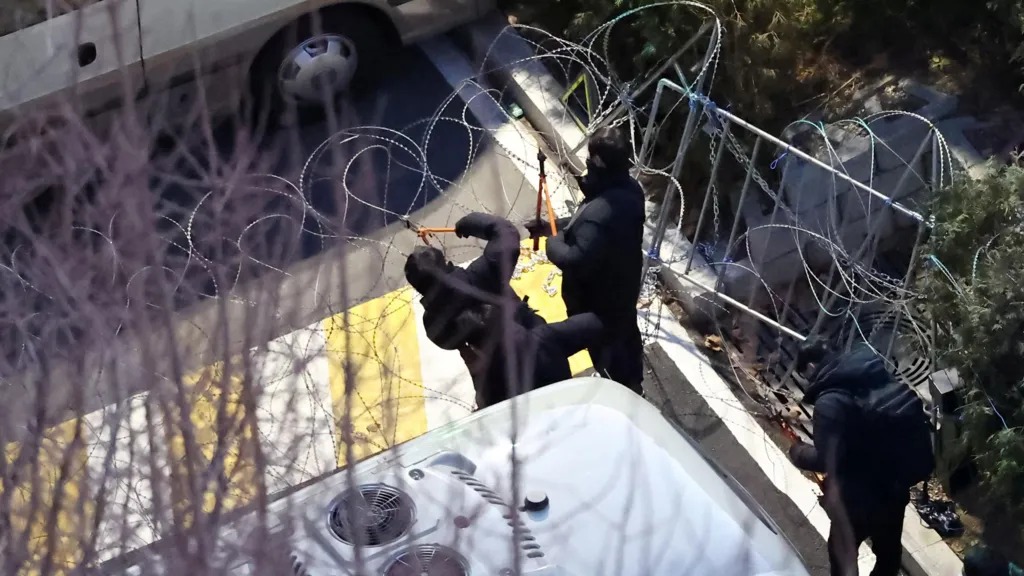
South Korea President Yoon Arrested After Martial Law Fallout
In a historic and unprecedented move, South Korea President Yoon Suk Yeol has been arrested, marking a dramatic chapter in the country’s political history. Yoon, who faces charges of insurrection linked to a failed martial law declaration on 3 December, is now the first sitting South Korean leader to be taken into custody.
The arrest comes amidst ongoing political turmoil following Yoon’s impeachment by parliament. He remains suspended from his duties, with his future as president now dependent on a ruling by the Constitutional Court.
What Led to President Yoon’s Arrest?
The dramatic arrest of President Yoon Suk Yeol follows his controversial attempt to impose martial law, a move he claimed was necessary to protect South Korea from “anti-state forces.”
However, investigations revealed that the martial law declaration may have been motivated by his own political troubles, as the opposition-controlled parliament increasingly limited his power.
Yoon’s 3 December martial law order led to chaotic scenes in parliament as lawmakers rejected the decree, prompting his impeachment. Parliament’s vote suspended Yoon from office, pending a Constitutional Court decision.
How Was Yoon Arrested?
Authorities launched a large-scale operation to apprehend President Yoon Suk Yeol, ending weeks of resistance.
- 1,000 investigators and police officers surrounded his residence in central Seoul.
- Officers used ladders and bolt cutters to bypass barricades and barbed wire set up by Yoon’s security team.
- After scaling walls and breaking through, investigators took Yoon into custody before dawn.
In a statement released prior to his arrest, Yoon maintained his stance that the investigation was “illegal” but said he would comply to avoid “unsavoury bloodshed.”
What’s Next for President Yoon?
Yoon is being held at the Seoul Detention Centre and is undergoing questioning by the Corruption Investigation Office for High-ranking Officials (CIO).
Under the current arrest warrant, Yoon can be detained for up to 48 hours. Investigators must then seek an extension to hold him longer or proceed with formal charges.
Public Reaction to Yoon’s Arrest
The arrest of South Korea’s President has deeply divided the nation:
- Pro-Yoon supporters have condemned the arrest, claiming the rule of law has been undermined.
- Anti-Yoon protesters, however, celebrated the news, describing it as a victory for democracy and justice.
The sharp contrast between these camps reflects the country’s deeply polarised political landscape.
Background on the Martial Law Crisis
Yoon’s short-lived martial law declaration on 3 December was justified by claims of threats from “anti-state forces.” However, it became evident that the move was politically motivated, aimed at consolidating power amidst his government’s struggles with the opposition.
The fallout from this decision has been unprecedented:
- Yoon was impeached and suspended by parliament.
- Key political allies, including his defence minister, resigned in the wake of the crisis.
- The Constitutional Court began a trial to decide whether Yoon should be permanently removed from office.
Constitutional Court Trial Looms
While Yoon remains in detention, the Constitutional Court continues to deliberate on whether to uphold his impeachment. A final ruling is expected in February, which could see him permanently removed from office.
External Link: BBC
Internal Link: Kenkou Land





